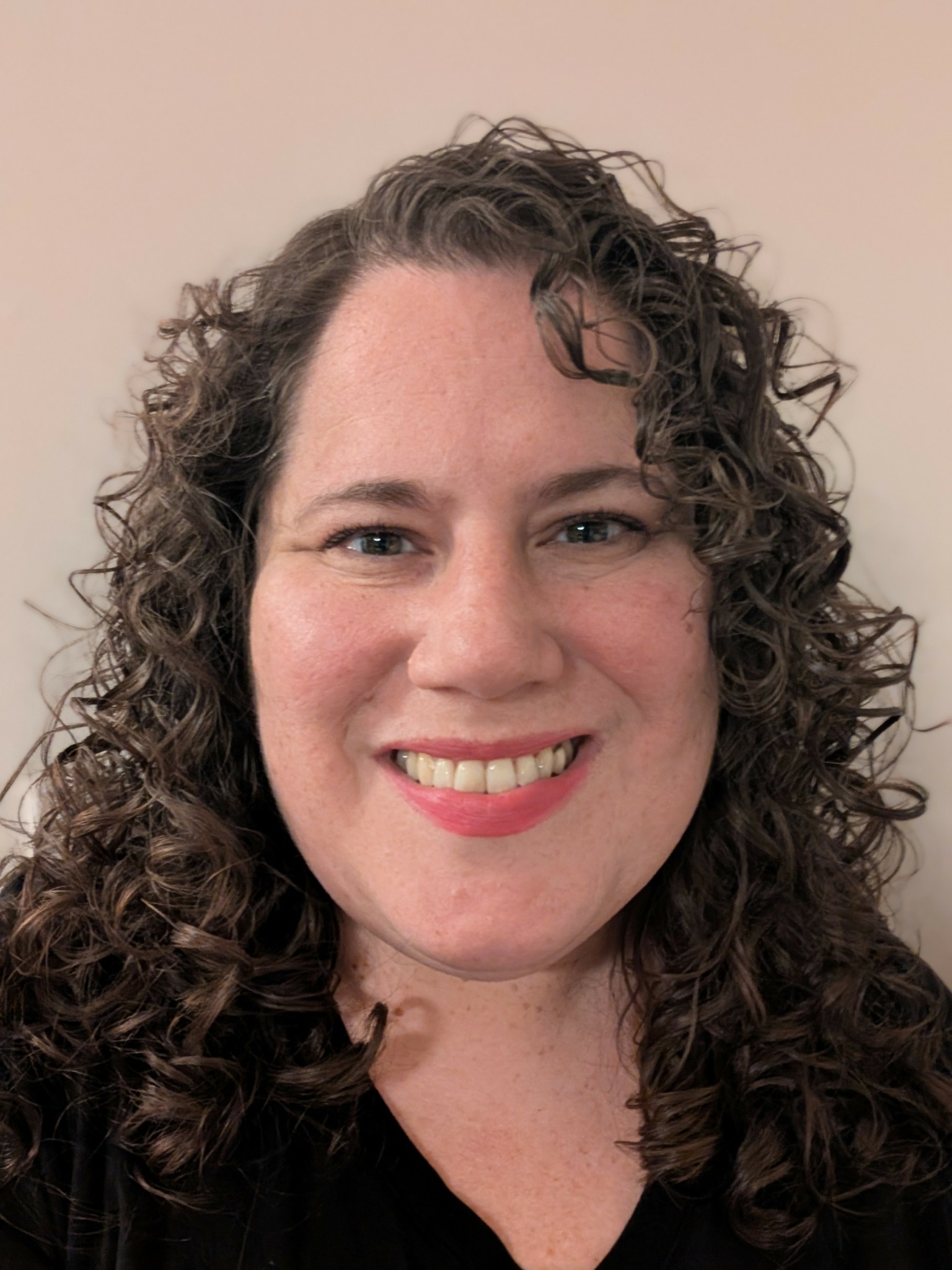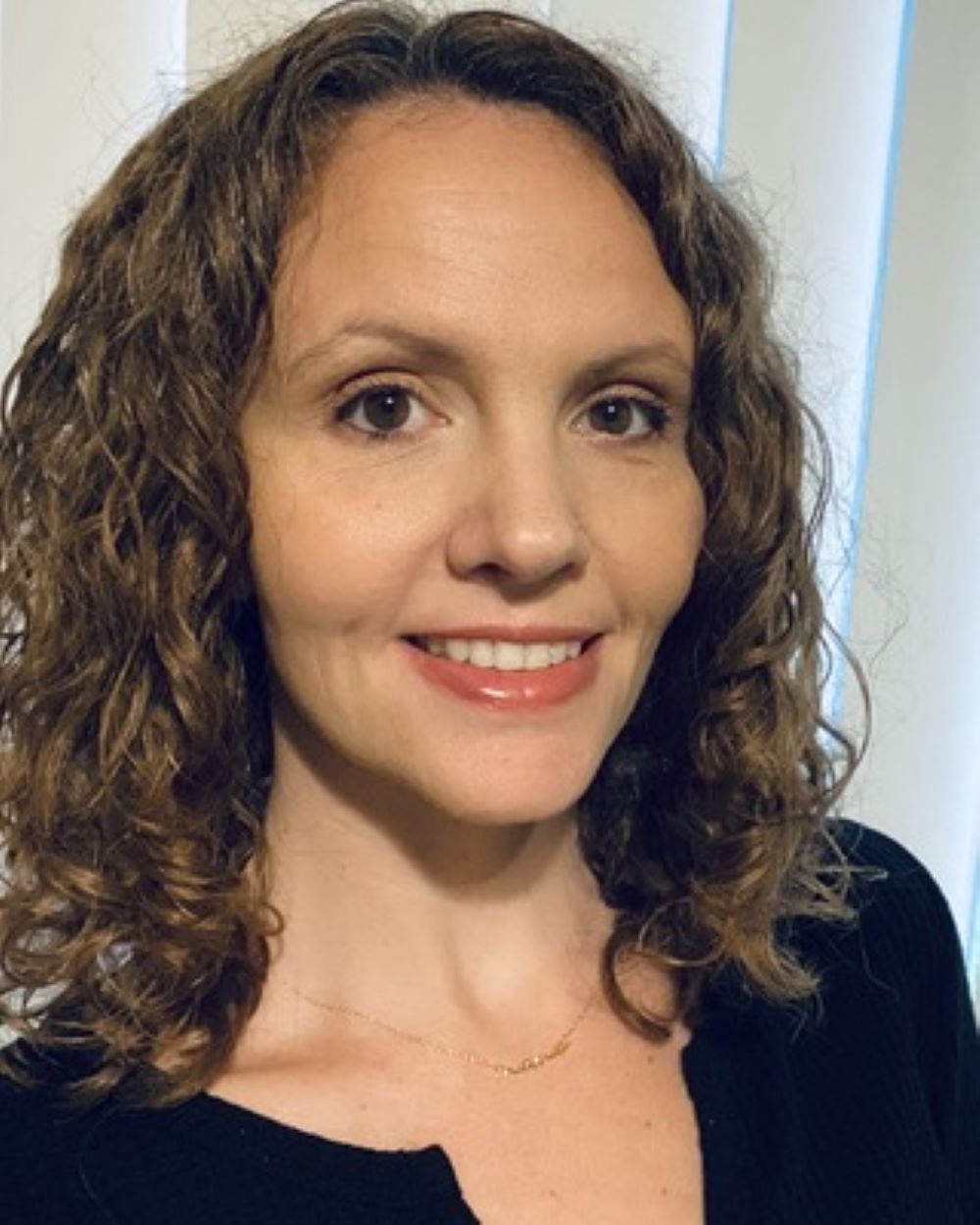We caught up with the brilliant and insightful Rebecca Ross a few weeks ago and have shared our conversation below.
Rebecca, thanks for joining us, excited to have you contributing your stories and insights. Setting up an independent practice is a daunting endeavor. Can you talk to us about what it was like for you – what were some of the main steps, challenges, etc.
The Founding Journey of Inspiration Wellness
The Story of Our Beginnings
The idea for Inspiration Wellness was born from a distinct observation within the mental health community. I saw a landscape filled with talented, passionate clinicians at the start of their careers who faced a significant gap: the bridge between academic training and successful, independent practice. There were countless places to work, but few places to truly grow. The vision was clear: to create more than just a private practice, but an incubator for professional development.
I decided to start Inspiration Wellness as a foundational starting point for mental health providers of all licensure types. The core mission was twofold: first, to provide a structured, supportive environment for associate-level clinicians to gain their required supervision hours; and second, to equip them, once fully licensed, with the practical private practice management skills that are so often overlooked in graduate programs. We aimed to be the place where clinicians could not only hone their therapeutic craft but also learn the business acumen necessary to thrive independently.
Main Steps to Establishment
Establishing the practice was a methodical process that required wearing many hats—clinician, entrepreneur, and strategist. The main steps included:
Conceptualization and Business Planning: The first step was to move beyond the idea and create a tangible business plan. This document outlined our mission, vision, target demographic (both for clients and supervisees), financial projections, and a detailed plan for our supervision and training programs.
Legal and Administrative Formation: We officially established Inspiration Wellness as a legal entity (LLC). This involved registering the business name, obtaining a federal Employer Identification Number (EIN), and setting up business bank accounts to keep finances separate. We also invested in comprehensive professional liability and business insurance.
Clinical Infrastructure and Compliance: A significant amount of time was dedicated to building a compliant and efficient clinical framework. This included selecting and implementing a HIPAA-compliant Electronic Health Record (EHR) system, drafting all necessary clinical forms (intake paperwork, consent forms, etc.), and establishing clear protocols for supervision, documentation, and emergency situations.
Securing a Physical Space: We sought a location that was not only welcoming and confidential for clients but also conducive to learning. It needed comfortable therapy rooms, as well as a space suitable for group supervision and professional development workshops.
Financial Management and Credentialing: We developed a detailed budget and secured the initial capital required for startup costs. Simultaneously, we began the often lengthy process of getting credentialed with insurance panels to ensure our services would be accessible to a wider range of clients.
Recruitment and Outreach: Once the foundation was laid, we began reaching out to local universities, professional organizations, and recent graduates to share our mission and recruit our first cohort of supervisees.
Key Challenges in Setting Up the Practice
The journey was not without its hurdles. The most significant challenges we faced were:
The Dual Identity: The primary challenge was balancing the roles of a practicing clinician with those of a business owner and supervisor. Dedicating adequate time to administrative tasks, financial oversight, and marketing, while also maintaining a second business and providing quality supervision, was a demanding juggling act.
Navigating Insurance Credentialing: The process of becoming an in-network provider with insurance companies was far more complex and time-consuming than anticipated. Delays in this area directly impacted our initial revenue stream and ability to serve certain clients.
Creating a Scalable Supervision Model: Designing a supervision program that was both high-quality and financially sustainable required careful planning. We had to ensure our senior clinicians had the training and bandwidth to provide excellent supervision without leading to burnout, all while keeping the model affordable for new professionals.
What I Would Have Done Differently
Knowing what I know now, there are a few things I would approach differently. First, I would have outsourced certain administrative tasks, like insurance billing and credentialing, from day one. Trying to manage these highly specialized areas internally created a steep learning curve and diverted focus from our core mission. Second, I would have invested more heavily in practice management technology earlier on. A robust, integrated system for billing, scheduling, and documentation would have saved countless hours and streamlined our operations from the start.
Advice for a Young Professional Considering Their Own Practice
For any young professional considering this path, my advice is rooted in our founding principles:
Define Your “Why”: Don’t just start a practice; start a practice with a purpose. Is there a specific population you want to serve? A unique therapeutic model you want to implement? A gap in the market you want to fill? Your mission will be your anchor during challenging times. Our mission to train and empower new clinicians has been our guiding light.
Become a Business Student: Being an excellent clinician is not enough to run a successful practice. You must be willing to learn the fundamentals of business: marketing, finance, accounting, and human resources. Seek out mentors, take business courses, and read voraciously.
Build Your Network Before You Need It: Cultivate strong relationships with colleagues, potential referral sources, and other business owners. This network will be an invaluable source of support, advice, and client referrals. Don’t build in isolation.
Start Lean, but Think Big: You don’t need the fanciest office or the most expensive software on day one. Start with a solid, lean budget and invest strategically as your practice grows. However, always have a long-term vision for where you want to go.
Prioritize Self-Care: The demands of practice ownership are immense. To prevent burnout and serve your clients and staff effectively, you must build sustainable self-care practices into your routine from the very beginning.
Starting Inspiration Wellness has been one of the most challenging and profoundly rewarding experiences of my career. It is a privilege to not only serve our clients but also to play a role in shaping the next generation of mental health professionals.

Rebecca, before we move on to more of these sorts of questions, can you take some time to bring our readers up to speed on you and what you do?
For those who may not have read about me before, my path into the mental health field was driven by a deep-seated fascination with human resilience and a desire to help others navigate life’s complexities. I began my career: full of passion after school, eager to apply my knowledge, and a little overwhelmed by the transition from student to professional. I worked in various settings, and it was during my time as a Certified Physicians Practice Manager that I first identified a critical need within our profession. I felt a distinct lack of mentorship on the practical side of building a sustainable career.
This experience stayed with me as I became a consultant and eventually a founder of not one but two businesses. I saw the same pattern repeat: brilliant, empathetic new therapists were graduating with excellent clinical skills but almost no training in business management, marketing, or the nuances of private practice. I realized my passion had evolved—not only did I want to provide therapy to clients, but I also wanted to create the supportive, educational environment I wished I’d had. This was the genesis of Inspiration Wellness.
Our Services: What We Do and the Problems We Solve
Inspiration Wellness is a mental health practice with a dual mission: to provide exceptional therapeutic care to our community and to serve as an incubator for the next generation of mental health professionals.
For Our Therapy Clients: We provide individual, couples, and family therapy for a wide range of concerns, including anxiety, depression, trauma, life transitions, and relationship challenges. The problem we solve for our clients is the need for accessible, compassionate, and high-quality mental healthcare. We create a safe, non-judgmental space where individuals can explore their challenges, develop coping skills, and move toward a life of greater meaning and well-being.
For Mental Health Professionals: We offer two core services. First, we provide clinical supervision for associate-level clinicians working toward full licensure. Second, for fully licensed professionals, we offer consultation and training in private practice management. We solve a critical systemic problem: the gap between clinical training and entrepreneurial reality. We empower new therapists with the skills and confidence they need to not only be great clinicians but also to build successful, sustainable, and ethical practices.
What Sets Us Apart
What truly sets Inspiration Wellness apart is our commitment to this dual mission. We are not just a collection of individual therapists sharing an office; we are a teaching and learning ecosystem. Our clients benefit from this model because they are served by clinicians who are deeply engaged in ongoing learning, supported by seasoned supervisors, and committed to the latest evidence-based practices.
Our supervisees and trainees benefit because they are not just “employees”—they are members of a collaborative community designed to foster their professional growth from every angle. We believe that by investing in the well-being and development of our clinicians, we are making a long-term investment in the quality of mental healthcare in our entire community.
The path from idea to established practice was a rigorous one, involving detailed business planning, navigating the complexities of legal and administrative setup, and building our clinical infrastructure from the ground up. The main challenges were balancing my own work with the demands of being a business owner and the slow, often frustrating process of getting credentialed with insurance panels.
I am most proud of the community we have built. Seeing a supervisee pass their licensing exam and go on to launch their own successful practice, knowing we played a part in that journey, is incredibly fulfilling. It’s a tangible result of our mission in action—a ripple effect that extends far beyond our office walls.
The main thing I want potential clients, followers, and future colleagues to know is that Inspiration Wellness is built on a foundation of growth.
For clients: We want you to know that this is a place where you can feel safe to grow and heal, supported by therapists who are passionately committed to their own continuous development.
For professionals: We want you to know that this is a place where your career can take root. We are here to mentor, guide, and champion you as you grow into the confident and competent clinician you are meant to be.
Ultimately, our brand is about empowerment—empowering our clients to live healthier lives and empowering our clinicians to build meaningful careers. That is the heart of everything we do.

Any advice for growing your clientele? What’s been most effective for you?
While a multi-channel approach is always necessary, one strategy has consistently proven to be the most effective and sustainable for growing our clientele: building deep, trust-based relationships within our local professional community.
While online marketing and platforms like Psychology Today are crucial for visibility, they tend to cast a wide, impersonal net. The most consistent stream of ideal clients comes from trusted referrals. Here’s a breakdown of why this strategy is so powerful for us:
1. Referrals from Medical and Allied Health Professionals:
Our primary focus has been on connecting with primary care physicians, pediatricians, psychiatrists, and school counselors in Annapolis and the surrounding Anne Arundel County and Carroll County areas. These professionals are often the first point of contact for individuals and families struggling with their mental health.
How we do it: We don’t just send brochures. We invest time in meeting with them, either in person or virtually, to understand their needs and explain our practice’s model. We position ourselves as a reliable resource for them—a place they can call when they have a question or need to refer a patient with confidence. We emphasize our commitment to collaborative care, ensuring we communicate (with client consent) to provide integrated treatment.
Why it works: Trust is the currency in healthcare. When a doctor or school counselor recommends our practice, the client arrives with a pre-established sense of confidence and readiness to engage in therapy. This leads to higher conversion rates and stronger therapeutic alliances from the start.
2. Leveraging Our Unique Training Model as a Mark of Quality:
Our dual mission of being a training facility is, counterintuitively, one of our biggest assets for client growth.
How we do it: When we network with other professionals, we highlight our rigorous supervision and training program. We explain that every clinician at our practice, regardless of their licensure level, is engaged in constant learning and is supported by a team of experienced supervisors.
Why it works: This signals a high standard of care. Referring professionals know that a client sent to Inspiration Wellness won’t be siloed with a single practitioner but will benefit from the collective knowledge and oversight of our entire clinical team. This reputation for excellence has become our most powerful marketing tool, leading to word-of-mouth referrals from colleagues and former clients alike.
3. Community Engagement and Education:
We make a concerted effort to be present and valuable in our local community. This involves offering free workshops on topics like stress management for local businesses, parenting through difficult transitions at community centers, or managing anxiety for students at local schools.
Why it works: This approach establishes our expertise and builds goodwill. It allows potential clients to get to know our practice’s philosophy and approach in a low-pressure environment. It’s a strategy of giving value first, which naturally leads to new clients who feel a connection to our mission before they even book an appointment.
In summary, while a polished website and digital presence are the baseline expectations today, our most effective strategy for growth has been fundamentally human-centered. By building authentic relationships, demonstrating our commitment to clinical excellence through our training model, and giving back to our community, we have built a strong, steady, and sustainable flow of clientele.

Any advice for managing a team?
This is a critical question, as the health of our practice is directly tied to the well-being and morale of our team. In a field dedicated to healing others, we must be intentional about creating a supportive and uplifting environment for our own clinicians.
Here is the advice I have for managing a team and maintaining high morale, based on our experience at Inspiration Wellness:
1. Lead with Mission, Not Just Mandates.
People in our field are driven by purpose. The single most important factor in maintaining high morale is ensuring every team member feels connected to our “why.” We regularly revisit our dual mission: providing exceptional client care and fostering the next generation of therapists. When decisions are made, from a new policy to a change in workflow, we frame it within the context of that mission. This transforms daily tasks into meaningful contributions and reminds everyone that their work has a purpose far beyond the hours they log.
2. Create a Culture of Psychological Safety.
In a clinical setting, this is non-negotiable. Team members, especially our supervisees, must feel safe enough to be vulnerable. They need to know they can discuss their most challenging cases, admit when they feel stuck, or even share a clinical mistake without fear of shame or retribution. We foster this by:
Modeling it from the top: I am open about my own professional challenges and learning moments.
Structured Case Consultation: We have regular group meetings where difficult cases are discussed collaboratively, framing challenges as learning opportunities for the entire team, not as individual deficits.
Celebrating Questions: We explicitly praise and encourage questions, reinforcing the idea that curiosity and a desire to learn are our most valued traits.
3. Invest in Their Growth as Professionals, Not Just as Employees.
Our model is built on professional development, and this philosophy extends to everyone on the team. High morale comes from feeling valued and seeing a future for yourself. We actively support our team’s growth by:
Providing high-quality training: We bring in experts for workshops and provide a stipend for external professional development.
Encouraging Specialization: We help clinicians identify and cultivate their unique clinical interests, whether it’s in trauma, couples therapy, or a specific modality. This helps them build a career, not just hold a job.
Creating Paths for Advancement: We have a clear structure for supervisees to potentially stay on as licensed clinicians and eventually, perhaps, become supervisors themselves.
4. Champion Autonomy While Providing Unwavering Support.
Micromanagement is the fastest way to crush morale. We hire talented people and trust them to do their work. Clinicians have significant autonomy over their schedules and clinical decisions. However, this autonomy is coupled with a robust support system. Every team member knows they have access to immediate consultation for a crisis, regular one-on-one supervision, and the full backing of the practice leadership. They are independent, but never alone.
5. Fiercely Protect Well-being to Prevent Burnout.
In the mental health field, burnout is an ever-present risk. We are proactive and vocal about preventing it. This is more than just saying “practice self-care.” It’s about building it into our structure:
Reasonable Caseload Expectations: We monitor caseloads closely to ensure they are manageable.
Encouraging Time Off: We encourage and expect our team to use their vacation time to fully disconnect.
Modeling Boundaries: As a leader, I am intentional about my own work-life boundaries, which gives the team permission to do the same.
6. Communicate with Transparency and Consistency.
Uncertainty breeds anxiety. We prioritize clear, consistent, and transparent communication. The team is kept informed about the health of the practice, upcoming changes, and the reasons behind our decisions. We hold regular team meetings that are a forum for both disseminating information and for open dialogue and feedback.
By focusing on these core principles, we create a workplace where clinicians feel respected as professionals, supported as individuals, and united in a meaningful mission. That, I believe, is the true foundation of high morale.
Contact Info:
- Website: https://www.inspirationwellness.org
- Instagram: https://www.instagram.com/inspirationwellnessllc/
- Facebook: https://www.facebook.com/inspirationwellnessllc/?locale=hi_IN
- Linkedin: https://www.linkedin.com/company/inspiration-wellness-llc
- Other: https://inspirationwellness.clientsecure.me/






Image Credits
Inspiration Wellness Team 2025


